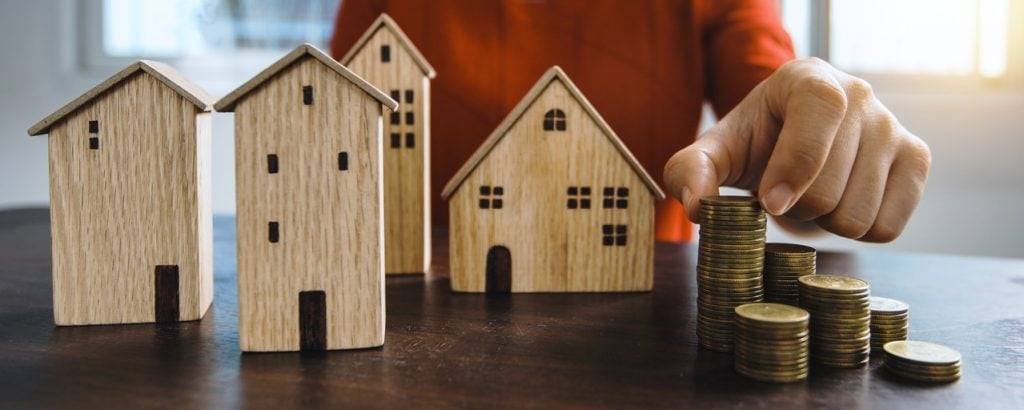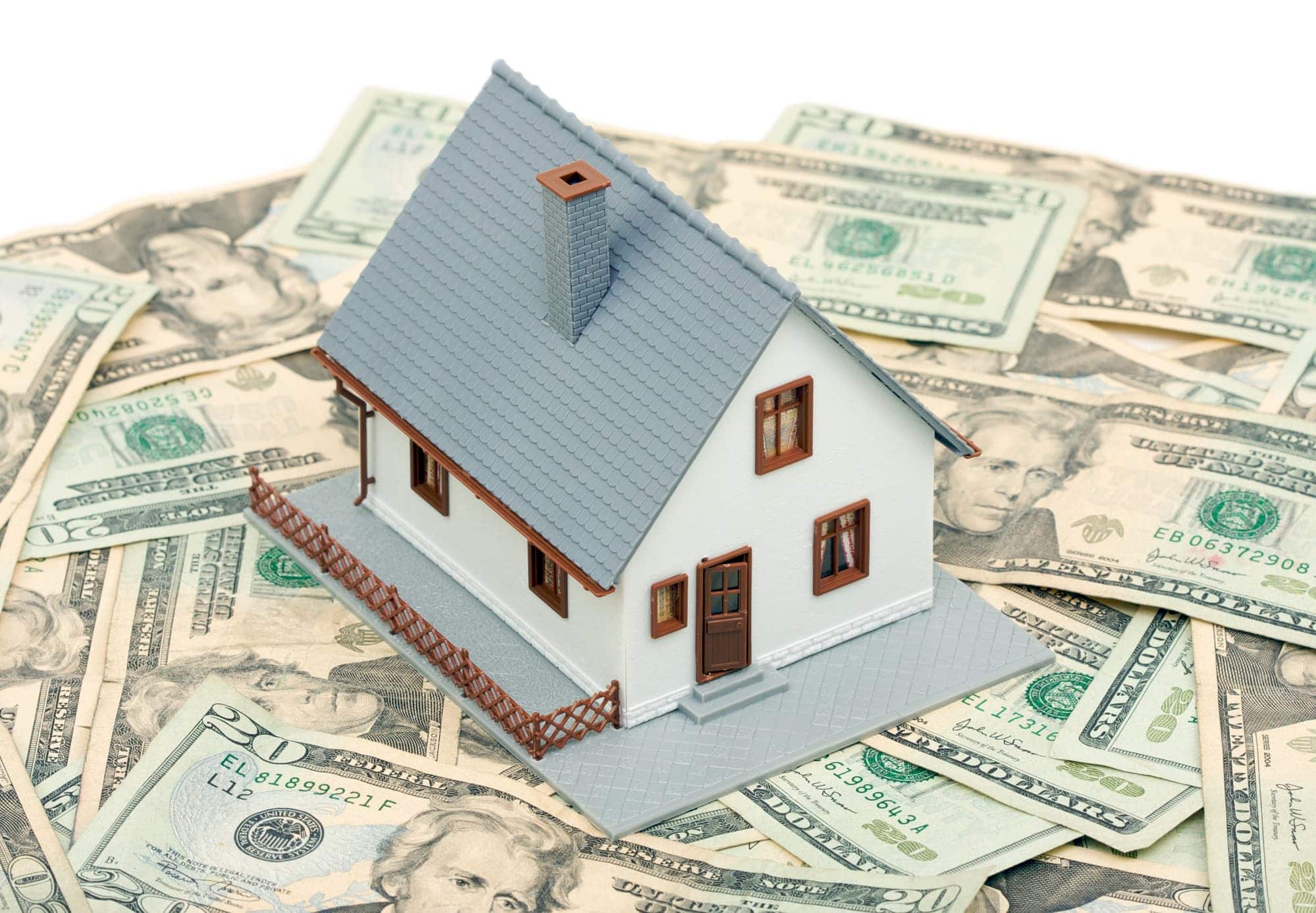You may get mixed emotions when selling your home. Most property owners struggle with the ‘how much is my house worth?’ dilemma. Research on different home sale prices and other online estimate tools can help you determine the best way to list your home on the market. Property assessors also offer a range of market values for homes.
Why Home Value Is Important
Knowing your home value, you can gauge the following vital elements better.
Evaluate What You Can Afford
Your home value gives you an accurate idea of what you can afford when making a mortgage application. It helps you determine the maximum equity loan you qualify for, enhancing better financial decisions.
Determine Whether a List is Priced Appropriately

Knowing your home value helps you understand the real estate market in your area. First, compare your home’s price to the approximate value of other nearby listings. Then, use the information to confirm if the sale listings equate to that of your home.
Decide How To Price Your Home for Sale
You must include the property’s value when listing your home for sale. Your area’s property price trends in your area should help you determine an accurate valuation.
Determine How Much You Can Save
Your home’s value influences critical factors like taxes and insurance. Most homeowners pay mortgage insurance to protect lenders in case of default. If the value of your home goes up significantly, you can ask your insurance agent to eliminate the payments.
How Much Is My House Worth?
Your home’s value depends on a variety of factors, e.g., location, size, and home conditions. Also, your house sale price fluctuates based on economic status, market activity, and political stability.
Professional home appraisers can visit and evaluate your home’s worth at any time. They also conduct property tax assessments.
What Factors Affect Home Value?

The value of your home depends on the following factors:
Neighborhood
Wealth and crime rate determines the affordability of neighborhoods. For example, more neighborhood amenities and services lead to higher home value. Homes in areas with high crime rates have lower property values.
Age
Modern homes have better facilities, e.g., updated finishes and better insulation. Older homes are more likely to need costly repairs and maintenance. So, the value of older homes is often lower than that of newer ones.
Condition
A home in good condition is more desirable to potential buyers. Conversely, a home in poor condition requires costly repairs and renovations. The expensive value-adding projects reduce the desirability of the house among potential buyers. Also, a poorly maintained home is more likely to be energy inefficient, discouraging buyers.
Size
Larger homes are usually more valuable than smaller homes because they have more property features that attract many buyers. For instance, a bigger house accommodates more bedrooms, bathrooms, and yard space.
Upgrades
Home improvements usually make the property more desirable among potential buyers. These can be kitchen upgrades, floor refinishers, and deck addition. Energy-efficient upgrades like new windows or solar panel installation also improve a home’s value.
Local Housing Market
The demand for residential properties in an area influences the home’s value. High demand with limited supply creates competition between buyers. The increased need also raises the price of homes.
Economy
When the economy is strong, job opportunities increase, and more people move to different areas of residence. As a result, the demand for houses increases, and the value of homes appreciates. Conversely, a weak economy leads to depreciation over time. Also, job security reduces, making people postpone or cancel house purchase plans.
Interest Rate
When interest rates are low, more people can afford a home. As a result, the demand increases, and the prices go up. Higher interest rates lock out many buyers, especially first-timers. In turn, the demand reduces, sales time increases, and the home’s value decreases.
Tax Rate
An increase in taxes reduces the disposable income of a homeowner. As a result, the home’s value depreciates from the lack of repairs or maintenance. On the other hand, when taxes decrease, homeowners have more money to maintain their property. Also, lower taxes attract more real estate buyers.
Determining the Value of a Home
Below are ways to detect how much a house is worth.
Conduct a Comparative Market Analysis (CMA)

A Comparative Market Analysis matches your property to comparable properties in your area. It then builds a statistical breakdown of your home’s worth. This analysis helps you determine your home’s marketability.
Determine the Fair Market Value
Market value is the price the buyer and seller agree is fair or reasonable. You can ask an experienced real estate agent to compile data that determines the fair market value. The CMA also provides valuable insights into your home’s fair market value.
Use Online Estimators
Online real estate marketplace provides valuable insights about your home. You can find the following information if you enter your address on an online tool:
- Date of construction of the house
- Square footage of the house and lot
- How much you and the previous owners paid for the home
- The number of bathrooms, rooms, and bedrooms
The online estimate tools combine the factors above to give you an accurate estimate of the property’s value.
Work With a Real Estate Agent
No matter the information you find online, contact a real estate agent once you are ready to sell your home. Agents visit and compare your home’s details to recent sales listings. The agents also access various listing service databases. So, you get an accurate market analysis instead of a quick estimate.
Hire a Professional Appraiser
An appraiser combines all information about the elements that affect your home’s value. The data analysis then creates an objective opinion of your home’s value. Finally, you’ll receive the results in an official report that you can use to apply for mortgages.
My Home’s Value Went Down. What Should I Do?
Political heat, negative climatic changes, and low employment opportunities can decrease your home’s worth. Here are some measures to take when your home’s value goes down:
Examine the Market
Once you notice a decrease in your home’s value, check the current market factors and conditions. Research recent sales of comparable homes in your area or check the local housing market trends. Also, check out trends in the real estate field. This information should help you understand the reason for the reduced value and identify potential opportunities.
Upgrade Your Home
Home remodeling projects such as kitchen and bathroom upgrades increase your home value. You can also give your HVAC, roof, or landscape a makeover.
Sell Your Home
If you don’t expect any positive change in the near future, sell your home before its value worsens. Offer favorable prices to attract buyers.
My Home’s Value Went Up. What Should I Do?
You can gain monetary benefits in the following ways if your home’s worth increases:
Adjust your homeowner’s insurance
Homeowners’ insurance pays for repairs and replacement from a disaster. The amount of home coverage depends on the replacement cost if a misfortune happens. So, you’ll need to adjust your policy to reflect your home’s new value.
Upgrade Your Home
A simple home upgrade will earn you more profit. If your home’s value goes up, the increased equity gives you a better chance to get a home equity loan or cash-out refinance. You can then invest the loan in another renovation or upgrade.
Sell Your Home
You’ll get increased equity and profit if you sell your house at a higher price. Sales at a higher price also allow you to reinvest the money in another promising property.
Consulting With a Professional
If you want to quickly solve the ‘how much is my home worth’ dilemma, consult real estate professionals.
The Benefits of Working With a Real Estate Agent or Appraiser
Professional intervention in real estate provides the following gains:

To Save Money
A real estate agent or appraiser will help you save money when buying or selling a house. Selling agents ensure all parties stick to the set period of time. As a result, you avoid the risk of missed timelines. These agents also handle things quicker under normal market conditions, giving you more time for other income-generating activities.
To Have Better Access To Homes
Although many homes are listed online, some sellers prefer private sales. Real estate agents know about houses you can’t find online for sale. They provide exclusive access to homes you would otherwise miss.
To Prevent Issues During Closure
Mortgage delays, document errors, unclear titles, and other issues can delay your closure. An experienced realtor has dealt with many homes for sale and can foresee obstacles in good time. As a result, you find a solution in good time and prevent last-minute bumps.
How To Choose a Professional To Help Determine the Value of a Home
Here are essential factors to consider when you select someone to perform a formal appraisal of your home:
Experience
The more houses your agent has reviewed, the higher the likelihood of an accurate appraisal. An experienced appraiser also offers guidance based on previous work.
License
Professional appraisers should be licensed to ensure adherence to set codes. The licensure requirements vary among states. Check with your local government to determine the specific criteria.
Reputation
A good reputation confirms that previous clients and the real estate community trust the appraiser. So, for a profitable sale, get an appraiser with credible recommendations.
You can contact your local real estate association to check your appraiser’s reputation.
Key Takeaway
Here are some key takeaways:
The Importance of Understanding a Home’s Value for Homeowners and Potential Buyers
Knowing your home’s value helps you assess the equity you have built as a homeowner. You can also determine the profits you want to make. Your home’s value should help you make informed decisions about renovations, insurance coverage, and refinances.
Resources and Professionals Available to Help Determine a Home’s Value
The following resources and professionals will help you determine your home’s value:
Appraisers and Realtors
Property appraisers examine your property’s and market conditions to determine your home’s value. A realtor is trained to assess market values and thus provides editorial opinions on the price. A professional appraisal company uses values from current real estate listings of similar homes to give valuation estimates.
Local Real Estate Market
Information from the local market provides sales history and insight into the market value of homes. You can also review and compare recent sales to the home you want to value.
Online Tools
Online resources like Zillow, Redfin, and Trulia are valuable estimation tools. The sources use local housing market trends and comparables to approximate your home’s value. The Federal Housing Finance Agency also provides an online calculator to evaluate prices.
Frequently Asked Questions About The Value Of A Home
How do I know the value of my home?
Use online valuation tools, ‘pull comps,’ or consult an expert to determine your home’s value. Professionals like realtors and appraisers gauge the factors that determine your home’s value. Then, the experts weigh the condition, location, and other vital elements to provide an estimate.
What is the most accurate home value estimator?
The automated valuation model (AVM) is the most accurate home value estimator. AVM uses algorithms to analyze and compare your home to other nearby properties. The valuation approach depends on market transactions hence the accuracy.
How can I quickly and easily determine the value of my house?
Online home valuation tools help you access your home’s value quickly. The tools use your local real estate market data to provide an estimate. You need to enter your home address and home features to get an estimated value.
How do I find the actual value of my home?
Consult an appraiser to determine the actual home value. Appraisers look at your home’s market value and other factors that could influence the price of the house. In the end, they provide a detailed appraisal report.
How is a house valued?
A house is valued based on its market value. The value is determined by comparison to property value trends in the area. Appraisers use comparables alongside factors like location, amenities, and square footage to estimate the value.
How can I add value to my home?
Home value addition isn’t a one-shoe-fits-all, and you can explore various ways to do so. For example, keep your home well-maintained with timely repairs and replacements. You could add fresh paint, update appliances, and get modern fixtures to increase your home’s value.





